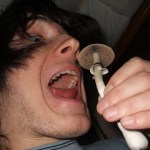addiction
What, with all the attacks on science and scientist these days, we may not want to be focusing on those times when science goes off the rails and makes a huge mess of things. But, science at its best and scientists at their best, will never shy away from such things.
Dr. Paul Offit just wrote a book called Pandora's Lab: Seven Stories of Science Gone Wrong, which not about an evil black dog that escaped from a box, but rather, seven instances when the march of scientific progress headed off a cliff rather than in the desired direction. People died. Many people died. Other bad things…
I'm currently reading Paul Offit's Pandora's Lab: Seven Stories of Science Gone Wrong, in preparation for an interview with him that I'll be recording later this week. I'll let you know about the interview, but at this time I can say that I'm very much enjoying the book. The publisher's description:
What happens when ideas presented as science lead us in the wrong direction?
History is filled with brilliant ideas that gave rise to disaster, and this book explores the most fascinating—and significant—missteps: from opium's heyday as the pain reliever of choice to recognition of opioids as a…
Before Patrick Morrison worked for the International Association of Fire Fighters, he was a firefighter himself. He’s experienced the horrifying and profoundly saddening events that first responders see every day. And like many other firefighters, he turned to alcohol to deal with the accumulating mental trauma.
Fortunately, Morrison got help and considers himself “in recovery” today. But many firefighters don’t. In fact, an August 2016 IAFF report noted that even though firefighters experience a post-traumatic stress disorder (PTSD) rate that’s similar to soldiers returning from combat, many…
By now, the enormity of America’s opioid abuse and overdose epidemic is common knowledge. With 78 Americans dying every day from an opioid overdose and with enough painkillers prescribed to give just about every U.S. adult their own bottle of pills, there’s hardly a community that’s gone untouched by the deadly problem. And a new study reminds us that we’ll be dealing with the aftermath far into the future.
The study, published in the form of a “research letter” in JAMA Pediatrics, examined rates of neonatal abstinence syndrome (NAS), a condition that occurs when babies are exposed to drugs…
In 2014, more than 28,000 people in the U.S. died from an opioid overdose. That same year, more Americans died from drug overdoses than during any other year on record, with the escalating numbers fueled by opioid abuse. Solutions to the problem are as complex as the epidemic itself, however a recent study pointed to one tool that can make a significant difference: prescription drug monitoring programs.
In a study published this month in Health Affairs, researchers found that implementation of a prescription drug monitoring program was linked to a more than 30 percent reduction in the rate of…
Every day in the U.S., more than 40 people die after overdosing on prescription painkillers. Deaths from a more notorious form of opiates — heroin — increased five-fold between 2001 and 2013. Addressing this problem — one that’s often described as a public health crisis — requires action on many fronts, from preventing abuse in the first place to getting those addicted into treatment. But when it comes to overdoses, there’s one answer we know works: naloxone.
Naloxone is a safe prescription medicine that’s highly effective in reversing an otherwise deadly opioid overdose. Typically, emergency…
A few of the recent pieces I've liked:
Ta-Nehisi Coates at The Atlantic: Barack Obama, Ferguson, and the Evidence of Things Unsaid
Danielle Paquette in The Washington Post: An Obamacare program helped poor kids and saved money. It was also doomed to fail.
Richard Florida at CityLab: This Holiday Season, Let's Turn Retail Jobs Into Middle-Class Ones
Gabrielle Glaser at ProPublica: Twelve Steps to Danger: How Alcoholics Anonymous Can Be a Playground for Violence-Prone Members
Emily Eakin in The New Yorker: The Excrement Experiment: Treating disease with fecal transplants
Get rid of your addictions while you sleep? Weizmann Institute researcher Dr. Anat Arzi is not promising this yet, but she and Prof. Noam Sobel have shown that changing bad habits through sleep conditioning could someday be possible. After just one session in the Neurobiology Department’s sleep lab, volunteers reported smoking on average 30% fewer cigarettes over the course of a week.
Volunteers given the same conditioning while awake did not reduce their nicotine consumption.
Arzi and Sobel had first demonstrated true sleep learning in 2012. This is the same conditioning that Pavlov…
By Sara Satinsky
Should pregnant women who use drugs be charged as criminals or given help? From a public health perspective the choice is clear: provide treatment to help women quit drugs before their use harms their child.
Less than a year ago, Tennessee adopted a progressive policy to provide such treatment, but now is on the brink of taking a big step back. It could become the first state to criminalize pregnant women whose drug use harms a fetus or newborn baby.
The state legislature has passed a bill that, if signed by Gov. Bill Haslam, would authorize the filing of criminal assault…
The Washington Post's After the Wars series offers an in-depth look at the challenges facing veterans returning from Iraq and Afghanistan. This past week, it's featured Rajiv Chandrasekaran's "The Other Wounds," about veterans' injuries and illnesses that aren't the direct results of enemy attacks, and Stephanie McCrummen's "The Choice," about one of the difficult decisions facing survivors of military sexual assault.
An unprecedented release of Medicare data has allowed for a lot of reporting on how much Medicare pays physicians; Puneet Kollipara rounds up several articles in Wonbook.…
The latest issue of the Journal of Public Health Policy includes an interesting piece by Linda Richter and Susan E. Foster of the organization CASAColumbia about "changing the language of addiction." (The journal is open access during the month of March; the home page is here.) They note that while the science of addiction has advanced, outdated public attitudes about it persist and interfere with effective treatment. Surveys have found adults, and even many physicians, to consider alcohol addiction to be at least partially a personal or moral weakness. Stigmatizing addiction can interfere…
The U.S. "war on drugs," besides failing to meet its goals, has demonstrated a stubborn ignorance of the effects that different drugs have in the human body. Granted, some drugs cause degeneration and are properly outlawed. Opiates such as heroin and stimulants such as cocaine and methamphetamine take a harsh physical toll and leave users addicted to the chemical. But classified along with these truly dangerous drugs are some of nature's most mysterious medicines. New research shows how marijuana, psychedelics, MDMA and even ketamine have positive physiological and psychological effects that…
This is a bonus addition to a series exploring the intersections between effectively caring for people living with chronic pain and the rise in unintentional poisoning deaths due to prescription painkillers. To read the three-part series, which explores the science of pain management as well as physicians' and public health workers' roles in preventing opioid abuse and overdose, click here, here and here.
by Kim Krisberg
"If you really look at how pain affects people and what it means to have pain...you start to view it more as a social phenomenon."
These are words from Dr. Daniel Carr, a…
This is the second in a series exploring the intersections between effectively caring for people living with chronic pain and the rise in unintentional poisoning deaths due to prescription painkillers. (The first post is here.) The series will explore the science and policy of balancing the need for treatment as well as the need to prevent abuse and diversion. This week's story looks at clinical efforts to reduce the risk of opioid abuse and overdose while still caring for patients; the next story will explore the role of public health officials in curbing opioid abuse.
by Kim Krisberg
Since…
There's a growing body of research linking childhood trauma (abuse, neglect, family dysfunction, etc.) to impaired brain development and functioning. Maia Szalavitz at TIME's Healthland blog describes the findings of new study by Harvard researchers (published in the Proceedings of the National Academy of Sciences):
Now, in the largest study yet to use brain scans to show the effects of child abuse, researchers have found specific changes in key regions in and around the hippocampus in the brains of young adults who were maltreated or neglected in childhood. These changes may leave victims…
Senators John McCain and Tom Coburn have released a report on "100 Stimulus Projects that Give Taxpayers the Blues." Their introduction rails against "torrential, misdirected government spending," and short descriptions of the 100 projects singled out for ridicule are evidently supposed to disgust readers. What disgusted me, though, was an apparent lack of respect for scientific research.
Around one-fourth of the 100 projects involved scientific research, and I have to wonder whether their criteria for inclusion was a word that might make a sixth-grader giggle. Monkeys! Ants! Hot flashes!…
GAMBLING is extremely popular, with lottery tickets, casinos, slot machines, bingo halls and other forms of the activity generating revenues of more than £80 billion each year in the UK alone. For most people, gambling is nothing more than an entertaining way to pass the time. But for some, it becomes a compulsive and pathological habit - they spend increasing amounts of time gambling, because tolerance builds up quickly, and experience withdrawal symptoms when they aren't gambling.
The terms "tolerance" and "withdrawal" are normally associated with drug addiction, and indeed pathological…
Well, not quite. I got an intriguing abstract in my inbox earlier today, to this new paper from BMC Neuroscience:
Here using a new conditioned suppression paradigm, we investigated whether the ability of a foot-shockpaired conditioned stimulus to suppress chocolate-seeking behavior was antagonized by previous exposure to a chronic stressful experience, thus modeling aberrant chocolate seeking in sated mice. Our findings demonstrate that while Control (non-food deprived) animals showed a profound conditioned suppression of chocolate seeking during presentation of conditioned stimulus,…
Will you have that extra chocolate bar when you're worried about your weight? Will you spend that extra hour on the internet when you have other things to do? Will you have that extra drink with an attractive colleague when your partner is waiting at home? Our lives are full of temptations and some of us are better at resisting them than others. But unexpectedly, the very people who think they are most restrained are also most likely to be impulsive. Their inflated belief in their own self-control leads them to overexpose themselves to temptation.
In a series of four experiments, Loran…
Recently I listened to the author of Addiction: A Disorder of Choice, Gene M. Heyman, interviewed on the Tom Ashbrook show. A lot of the discussion revolved around the term "disease", which I can't really comment on, but a great deal of Heyman's thesis is grounded in rather conventional behavior genetic insights. In short, a behavioral trait can have a host of inputs, and is often a combination of environment & genes developing over a lifetime. Alcoholism is not much of an issue among observant Mormons because of their environment, not their genes. Heyman points out that whereas some…



